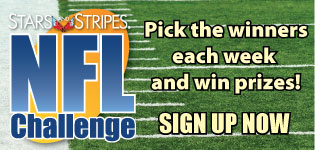Space drug could help alleviate nausea on land and sea
HOUSTON — Upon reaching space, astronauts on the space shuttle instantly transitioned to weightlessness, and for a majority of them that dizziness led to a sick stomach.
Trouble is, the best remedies for motion sickness also cause drowsiness, not the best prescription for astronauts who must begin work as soon as they reach space.
Johnson Space Center's chief pharmacologist, Lakshmi Putcha, has sought a better alternative for a quarter of a century. And now, in the form of a nasal spray, Putcha believes she's found a fast-acting, effective treatment for motion sickness.
"We're pretty excited about this," Putcha said.
Better still, the drug could benefit more than just astronauts — it might find applications for use by space tourists, sailors, cruise-goers and potentially cancer patients who encounter nausea.
This week NASA announced a deal with Epiomed Therapeutics Inc. of Irvine, Calif., to develop and commercialize the treatment.
When Putcha arrived at NASA some 25 years ago, astronauts flying into space carried patches or pills based on the drug scopolamine. It was effective, but the technology to deliver the drug was flawed: if an astronaut rubbed his or her eyes after touching a patch they could get blurred vision, the drug didn't take effect right away and it made some astronauts drowsy.
These complications caused serious issues for NASA in those days, when most shuttle missions lasted only a few days and there were fewer crew members.
"If a single crew member was sick it could lead to the loss of mission success," Putcha said.
Leroy Chiao, a three-time space shuttle flyer, said the transition from pulling three G's — three times the force of gravity — to weightlessness is abrupt.
"At main engine cutoff you're instantly weightless," said Chiao, who consults for the National Space Biomedical Research Institute. "It feels like you're doing a forward tumble on a gymnast's mat, and all kinds of wrong information is flowing in your brain. After the initial tumble you feel dizzy. It's just not natural."
Chiao was one of the lucky 30 percent of first-time fliers who didn't get nauseous. But for the majority of shuttle fliers there were only drugs that caused drowsiness.
Putcha kept searching for a better way. Eventually she returned to scopolamine, and realized that if it could be delivered in smaller doses via a nasal spray it might act more quickly with few if any side effects.
Working with the U.S. Navy, she and other researchers conducted tests using Navy cadets in which the nasal spray worked well.
At half of a dose of previous applications, the scopolamine spray effectively treated nausea.
But conducting a third, and larger clinical test — necessary to use the drug in patients — was beyond the scope of NASA's mandate.
So Putcha helped establish a first-of-its-kind partnership between NASA, the U.S. Navy and Epiomed, which will conduct the clinical trials needed to bring the nasal spray to the marketplace.
Putcha believes the drug can bring near-instant relief for motion sickness in travelers, and it might also help control drug-induced sickness in cancer patients receiving chemotherapy.










